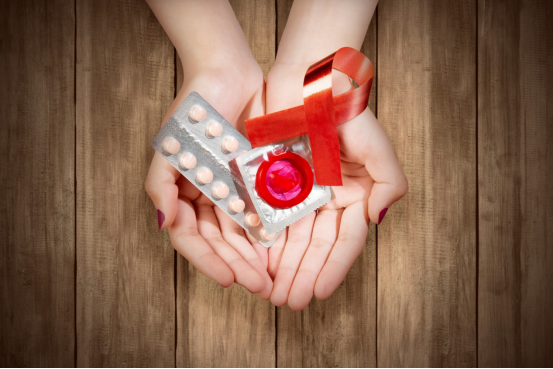7 Proven Ways to Prevent HIV and Protect Your Health
HIV prevention is essential for safeguarding your health and the health of others. By taking proactive steps, you can significantly reduce your risk of HIV and live a healthier, more informed life. Here are seven proven strategies to help you prevent HIV and protect yourself from the virus.
HIV prevention is essential for safeguarding your health and the health of others. By taking proactive steps, you can significantly reduce your risk of HIV and live a healthier, more informed life. Here are seven proven strategies to help you prevent HIV and protect yourself from the virus.

1. Always Use Condoms: The First Line of Defense
Consistently using condoms during sex is one of the most effective ways to prevent HIV. Condoms act as a barrier, blocking the transmission of bodily fluids that can carry the virus. Whether you’re having vaginal, anal, or oral sex, using a condom every time significantly reduces the risk of HIV.
Along with condoms, limiting the number of sexual partners you have can further reduce exposure to HIV and other STIs. Regular testing for both HIV and STIs is also crucial for early detection and better management.
2. Get Educated: Knowledge is Power
Understanding how HIV spreads and how to protect yourself is key to preventing infection. By learning about the virus, you can make informed choices about your health. Educate yourself and share the knowledge with friends and family to help reduce the stigma surrounding HIV and encourage safer behaviors.
Use reliable sources like healthcare providers, online resources, and awareness campaigns to stay informed and empower those around you.
3. Get Tested Regularly: Know Your Status
Regular HIV testing is an easy and essential part of taking care of your health. Early detection allows for more effective treatment and reduces the chance of unknowingly transmitting the virus to others. For those at higher risk, such as people with multiple sexual partners or those who inject drugs, frequent testing is particularly important.
Testing is available at many clinics, often free or at a low cost, so make sure to take advantage of these services.
4. Consider PrEP: A Powerful Prevention Tool
Pre-Exposure Prophylaxis (PrEP) is a daily pill that can greatly reduce the risk of HIV for those at high risk. If you have a partner with HIV, engage in unprotected sex, or share needles, PrEP can prevent the virus from establishing an infection.
Talk to your doctor about whether PrEP is right for you. Many health insurance plans cover it, and there are assistance programs available for those who need help with the cost.
5. Avoid Sharing Needles: Use Clean Syringes
For individuals who inject drugs, sharing needles can lead to HIV transmission. Needle exchange programs allow people to trade used needles for clean ones, reducing the risk of HIV and other bloodborne diseases.
These programs are an important public health resource and can help protect individuals who inject drugs from the dangers of HIV.
6. Antiretroviral Therapy (ART): Preventing HIV Spread
If you're living with HIV, antiretroviral therapy (ART) is essential for managing the virus. ART reduces the viral load to undetectable levels, meaning the virus cannot be transmitted to HIV-negative partners through sexual contact. This is known as Undetectable = Untransmittable (U=U).
Starting ART as soon as possible improves health outcomes for people living with HIV and prevents further transmission.
7. Support Your Community: Spread Awareness and Reduce Stigma
One of the most powerful ways to prevent HIV is to build a supportive, informed community. Encourage those around you to get tested, use protection, and educate themselves about HIV. By fostering open conversations, we can reduce the stigma surrounding HIV and create a safer, more supportive environment for everyone.
Conclusion: Take Action Today to Protect Your Health
Preventing HIV is within your control. By taking simple steps like using condoms, getting tested, considering PrEP, and supporting your community, you can reduce your risk and protect those around you. Remember, knowledge and prevention are always the best defense.
Don’t wait—take action today to protect your health and help others do the same.